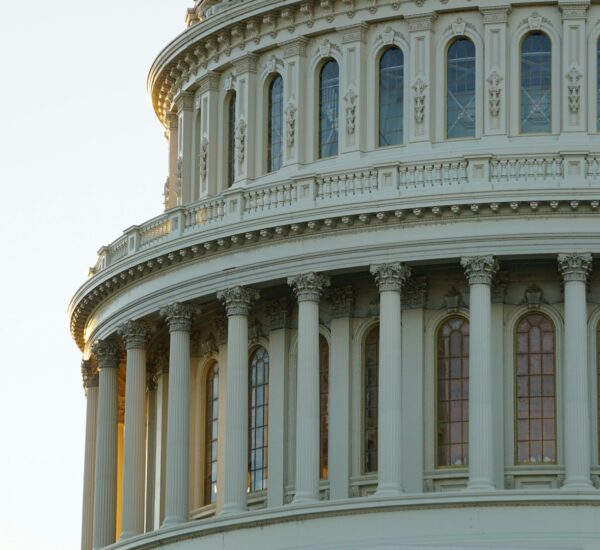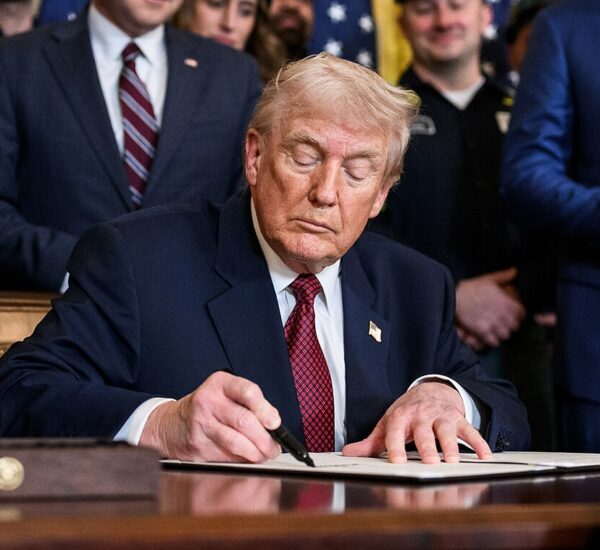Trump wins again!
WASHINGTON, D.C. – In a major win for President Donald Trump’s immigration agenda, U.S. District Judge James Boasberg declined to stop the administration from enforcing deportations under the Alien Enemies Act, citing recent guidance from the U.S. Supreme Court.
The emergency request—filed by the American Civil Liberties Union (ACLU)—sought to block the deportation of over 200 foreign nationals to El Salvador, many of whom are now being detained in the country’s Terrorism Confinement Center (CECOT). Despite liberal media outrage, officials confirmed that many of those deported posed serious security risks.
Trump Administration Enforces National Security Powers
The Trump White House has invoked the Alien Enemies Act (AEA)—a national security law dating back to 1798—granting the president authority to remove foreign nationals from countries considered hostile or dangerous to the United States.
The Department of Homeland Security (DHS), backed by the Department of Justice (DOJ), has argued the use of the AEA is both lawful and necessary in today’s volatile world. They maintain the law allows the U.S. government to act quickly when potential threats to American citizens are identified.
“As the Supreme Court recognized, foreign policy and national security are core presidential powers,” said a DOJ spokesperson. “President Trump is fully within his rights to protect the nation.”
ACLU Legal Motion Falls Flat in Federal Court
The ACLU’s emergency motion sought a nationwide restraining order requiring the Trump administration to delay deportations and give every affected person 30 days to file legal challenges. But Judge Boasberg, while expressing sympathy, ruled that he lacked the legal authority to grant such sweeping relief.
“I’m sympathetic to everything you’re saying,” Boasberg stated in Friday’s hearing. “I just don’t think I have the power to do anything about it.”
He cited the April 7 Supreme Court ruling, which stated that legal objections to AEA deportations must be filed in the specific jurisdiction where the individual is detained—not through nationwide injunctions.
Supreme Court Ruling Cited by Both Sides
The Supreme Court’s unanimous 9-0 decision upheld the government’s power to deport under the AEA, but emphasized detainees must have a chance to legally challenge removal. The justices also ordered the administration to “facilitate” the return of Kilmar Abrego Garcia, one detainee deported to CECOT.
However, officials now say Garcia has been moved to another prison in El Salvador—and both the Trump administration and El Salvadoran President Nayib Bukele agree they lack jurisdiction to return him to U.S. soil.
Future Deportations Still on the Table
In court, Deputy Assistant Attorney General Drew Ensign told Judge Boasberg that there were no immediate flights planned, but also said the administration reserves the right to remove individuals at any time in accordance with the law.
“There are no flights scheduled tomorrow,” Ensign said, “but DHS has not ruled out further removals.”
The ACLU is now appealing directly to the Supreme Court, accusing the administration of defying its prior ruling. But many legal experts say the Trump administration is on firm ground—especially with a court that continues to affirm presidential authority over immigration and national security.
Conservative Leaders Applaud the Decision
Supporters of President Trump’s America First immigration policy have praised the administration for standing firm on enforcement, even as progressive groups attempt to stall removals through the courts.
“This is about law, order, and protecting our sovereignty,” said one former ICE official. “President Trump is using the tools our Founders gave us. The left just doesn’t like it when the law is enforced.”






